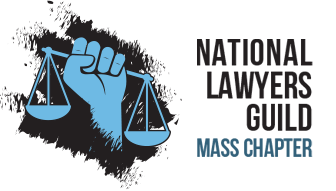October 16, 2023
“It is easy to blur the truth with a simple linguistic trick: start your story from ‘Secondly.’” Mourid Barghouti
This “secondly” hovers over Dean Onwuachi-Willig’s response to the events of the past ten days, isolating these events from the context of over 75 years of brutal settler colonialism. The response denounces the violence of resistance while leaving unnamed the violence of the oppression from which it stems. It obscures the dynamics of this violence through blanket statements and the careful language of “conflict,” belying any professed concern for Gaza andPalestinians. And it clarifies the allegiances of an institution that claims to teach us to speak truth to power.
As students and alumni of Boston University School of Law, it is incumbent on us to hold this institution to account.
The context of the occupation that has besieged the lives of Palestinians for decades is not novel. Naming it should not be controversial. Amnesty International and Human Rights Watch have both issued lengthy reports condemning Israel’s persecution of Palestinians as apartheid and a crime against humanity. In the last year alone, the United Nations addressed this persecution across twelve resolutions, reaffirming Palestinians’ inalienable right to self-determination. Black and Indigenous movements for liberation have far deeper roots in solidarity with Palestine, from the Black Panther Party, the SNCC, and the American Indian Movement to the Movement for Black Lives and the NDN Collective. They recognize, as we do, that systems of oppression know no borders.
A Boston University School of Law student who reached out in 2021 to ask the administration to condemn Israeli airstrikes on Gaza that killed over 250 Palestinians recalled that “their stance was that they do not comment on purely international issues.” Yet, as the email linked above recognizes, we are an international student body whose members are impacted by, and implicated in, these issues. As the stabbing and killing of six-year-old Palestinian-American Wadea Al-Fayoume in Chicago this past Saturday clearly shows, Islamophobic and xenophobic rhetoric aimed abroad has dire domestic consequences.
This week we have watched leaders, pundits, and peers weaponize racist colonial tropes of savagery and barbarism. We have watched them weaponize atrocity propaganda, imperial feminism, and omissions of context to urge the ethnic cleansing of the Palestinian people. We have watched in horror as our imperialist war machine gears up to “open the gates of hell” on a densely packed open-air prison filled with children.
Our consent will not be manufactured.
Our Palestinian siblings have been told to qualify their humanity with condemnations, to swallow the distortion of their narratives, to do so repeatedly and politely. Yet they persist, undeterred, in speaking their pain and singing their liberation. Amid threats, police repression, and state surveillance here. Amid bombs, blockades, and blackouts, white phosphorus and the withholding of food, water, and medical supplies there. Amid a genocide funded and cheered by leaders who command billions of our dollars but refuse to represent us.
Our anti-Zionist Jewish siblings have been resolute in rejecting the conflation of Judaism with Zionism, and of anti-Zionism with anti-Semitism. They have stood unwavering in their solidarity with Palestine and the Palestinian people’s right to sovereignty. They have marched in resistance to mounting atrocities, even as grief and hard questions weigh heavy.
Undoubtedly, we must heal in community. But there will be no healing without justice, and no justice without freedom. As Nelson Mandela affirmed, “We know too well that our freedom is incomplete without the freedom of the Palestinians.”
We stand firmly with Palestine.
_______________



